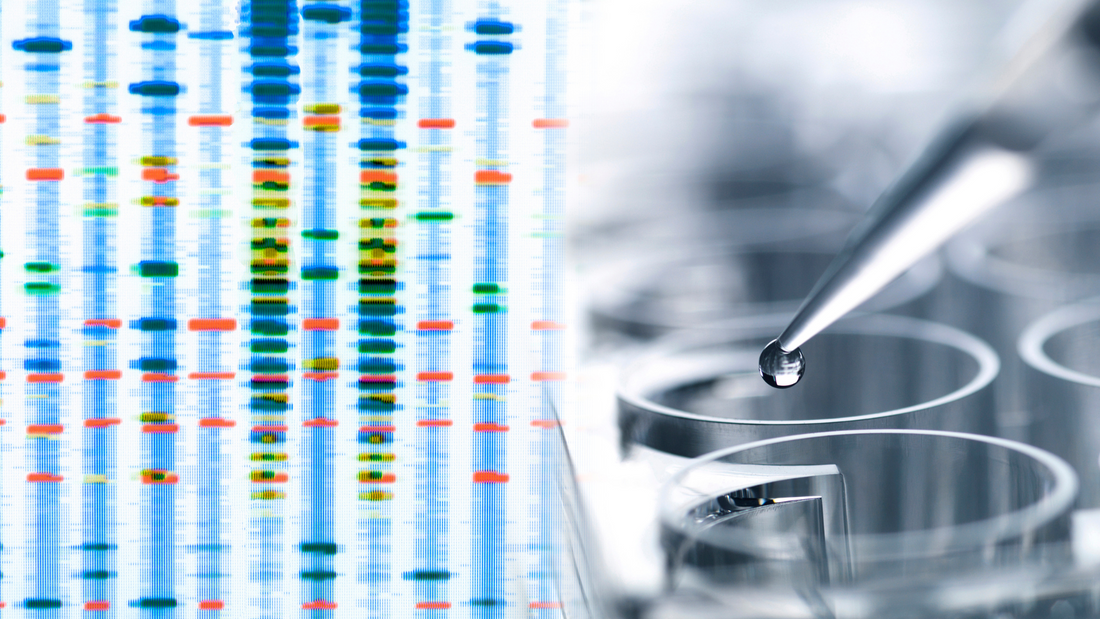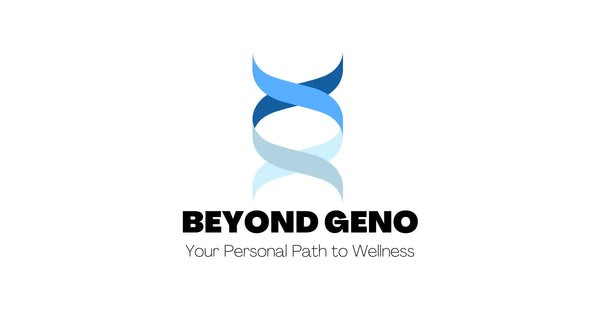
Does Direct to Consumer DNA Test Results Impact Your Insurance?
Share
Direct-to-Consumer Genetic Tests
As we delve into the world of direct-to-consumer genetic tests, it’s essential to recognize the transformative impact these testing services have on individuals' understanding of their genetic makeup and see your DNA connections. With the rise of DNA testing services, more people are opting to order their DNA test kits, seeking insights not only into their ancestry but also into potential health risks. The convenience of home sample collection, whether through a cheek swab or a saliva sample, has revolutionized the way we access genetic information and understand our DNA relatives.
What is Genetic Testing?
Genetic testing refers to the analysis of DNA samples to identify changes or mutations in genes that may affect health and ancestry. A DNA test can provide comprehensive insights into one's genetic makeup, revealing information about ancestry, genetic predispositions, and even potential paternity through a DNA paternity test. Consumers can now access genetic testing for ancestry through various testing companies that offer user-friendly DNA test kits. These kits typically include a collection kit for gathering a DNA sample, which can be a saliva sample or a simple cheek swab.
Once a sample is collected and sent to a testing company, individuals await their DNA test results, which can uncover fascinating details about their genetic relatives, including potential DNA matches. With the advancements in genetic testing technology, the accuracy of DNA test results has significantly improved, allowing consumers to explore their lineage and discover their roots. For those interested in tracing their family history, genetic testing for ancestry provides a unique opportunity to connect with distant relatives and learn more about their heritage. As we move into 2024 and beyond, the demand for these testing services continues to rise, with companies like 23andMe International leading the way in offering detailed genetic data and insights.
What is the difference between clinical and non-clinical genetic testing?
Understanding the distinction between clinical and non-clinical genetic testing is crucial for consumers seeking comprehensive DNA information to better understand their family trees. Clinical genetic testing is typically conducted in a healthcare setting and is used to diagnose, manage, or prevent health conditions. This form of testing often involves a healthcare professional who interprets the results, providing a comprehensive understanding of genetic risks associated with specific conditions and how to store your DNA sample. In contrast, non-clinical genetic testing, such as direct-to-consumer genetic tests, is available directly to individuals without the need for a healthcare provider. These tests often focus on ancestry information and personal traits rather than clinical health implications.
Non-clinical genetic tests can provide insights into family connections and ancestral origins but may not always deliver the same level of accuracy or clinical relevance as those conducted in a medical setting. For instance, while a dna test can reveal intriguing details about genetic relatives or ethnic backgrounds, it might not identify specific genetic disorders or predispositions that clinical tests would target. Additionally, the interpretation of the results can vary significantly, as direct-to-consumer genetic testing services may not provide the same depth of explanation or follow-up support as a clinical setting.
Furthermore, the privacy and ethical considerations surrounding non-clinical genetic testing differ from clinical testing, impacting how consumers approach at-home DNA tests. Consumers should be aware that while they can order their dna test kit and receive their dna results directly, the implications of these results may not be fully understood without professional guidance. In 2024, as the landscape of genetic testing continues to evolve, individuals must carefully consider the type of genetic test they choose, weighing the benefits of non-clinical tests against the potential need for follow-up clinical evaluations.
Direct-to-Consumer Genetic Tests
The rise of direct-to-consumer genetic tests, including at-home DNA tests, has made genetic information more accessible than ever. With just a simple order of a dna test kit, individuals can explore their ancestry and genetic traits from the comfort of their homes. These testing services generally use saliva samples or cheek swabs for sample collection, making the process straightforward and user-friendly; many consumers appreciate the convenience of at-home DNA tests. Once the sample is submitted to the testing company, individuals eagerly await their dna test results, which can unveil a wealth of information about their heritage and genetic predispositions.
Direct-to-consumer genetic tests not only focus on ancestry but can also provide insights into potential health risks. For example, some DNA testing services assess genetic markers associated with certain health conditions, allowing consumers to make informed lifestyle choices and even consider parents even taking a DNA test for more insights. However, it is essential to approach these results with caution. While the accuracy of dna test results has improved, they are not a substitute for professional medical advice or diagnosis. Consumers should be aware that the interpretation of genetic data can be complex, and results may vary based on the testing company's methods and algorithms.
Additionally, the ethical implications of sharing genetic data should not be overlooked. As consumers engage with the burgeoning market of genetic testing, they must consider how their genetic information may be used by testing companies. In regions like Singapore, where regulations on genetic data privacy are still evolving, individuals must remain vigilant about their choices. As we advance further into 2024, the conversation around direct-to-consumer genetic tests will continue to expand, raising important questions about privacy, accuracy, and the role of genetic information in our lives.
What should you take note of if you use DTC genetic test kits?
When utilizing direct-to-consumer (DTC) genetic test kits, there are several critical factors to consider to ensure a positive and informative experience. First and foremost, understanding the scope of what the DNA testing service provides is essential. While many companies promise insights into ancestry and genetic traits, the accuracy of these results can vary significantly. It’s advisable to research the testing company thoroughly and look for reviews or testimonials regarding their genetic test results to gauge reliability and practices to store your DNA. Furthermore, it’s vital to read the fine print concerning privacy policies and how your genetic data might be used after testing. Many DTC companies may share genetic information with third parties, which raises ethical concerns about data privacy and practices to store your DNA.
Another important consideration is the method of sample collection. Most DTC genetic test kits require either a saliva sample or a cheek swab, allowing you to order your DNA kit easily. Proper collection is crucial for obtaining accurate DNA results; thus, following the provided instructions carefully is imperative. Additionally, some individuals may find the concept of revealing their ancestry or potential health risks intimidating. It’s essential to approach the results with an open mind and to understand that not all genetic markers imply a definitive health outcome, as they can also help you better understand your family. For those interested in ancestry testing, they should also consider that DNA matches may reveal unexpected family connections, which can be both enlightening and overwhelming. Overall, being informed and prepared can greatly enhance the experience of using a DTC DNA kit today.
Frequently asked questions (FAQs)
How accurate are the results from DTC genetic tests?
The accuracy of results from direct-to-consumer genetic tests largely depends on the methodologies employed by the testing company, which can also influence how well you can better understand your family. While many companies, such as Genoplan, claim high accuracy rates, factors such as sample collection techniques and the algorithms used for analysis can affect the outcome of your DNA connections in the clearest way. It’s essential for consumers to understand that while these tests can provide valuable insights into ancestry and potential health risks, they should not be considered definitive diagnoses. For instance, a DNA test may indicate a predisposition to certain conditions, but environmental factors and lifestyle choices also play a significant role. Therefore, individuals should interpret these results cautiously and consider consulting healthcare professionals for a comprehensive understanding.
Can DTC genetic tests affect my insurance?
Concerns about how genetic test results might impact insurance coverage are increasingly prevalent among consumers. In many regions, including the United States, laws such as the Genetic Information Nondiscrimination Act (GINA) prohibit health insurance providers from using genetic information to discriminate against individuals. However, these protections may not extend to life insurance or long-term care insurance, which can create uncertainties for consumers. Therefore, before ordering a DNA test kit, it’s wise to review applicable regulations in your region—especially in areas like Singapore, where genetic data privacy laws are still under development. Understanding your rights in relation to genetic data is crucial to ensure that your personal information remains protected and does not negatively impact your insurance options, especially after you order your DNA test.

